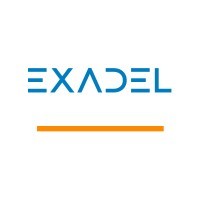What the job entails:
- You’ll be part of a small, sharp team applying Network Science to real-world business problems inside a high-impact AI exploration unit. We’re turning raw data into meaningful graphs, analyzing connections, detecting hidden patterns, and building tools to help autonomous agents make better decisions.
- You won’t be optimizing dashboards or stuck tweaking marketing reports. You’ll be building intelligence infrastructure.
Your main tasks:
- Transform tabular data into graphs that expose structure and behavior.
- Research, prototype, and deploy graph algorithms to detect communities, centrality, anomalies, and more.
- Build and maintain ETL pipelines for graph data extraction and enrichment.
- Design graph visualizations to support human and machine understanding.
- Collaborate with Data Scientists and LLM Engineers to integrate network-based reasoning into our autonomous systems.
- Experiment often, document clearly, and ship code that matters.
Technologies / techniques used:
- Python (heavy use)
- SQL (PostgreSQL, BigQuery)
- Graph libraries (e.g. NetworkX, cuGraph, Graphistry)
- Visualization tools (Plotly, Dash, D3, etc.)
- Neo4j or other graph databases
- GCP (preferred) or any major cloud provider
- GitHub + CI/CD pipelines
What you'll need:
- Strong Python and SQL skills.
- Ability to break down abstract problems into experimental pipelines.
- Clear communication skills in Portuguese and English.
- Curiosity and initiative. You find answers, you don’t wait for them.
- Solid data wrangling and visualization abilities.
- Willingness to go deep into Network Science, even if you’re not an expert (yet).
Nice to have:
- Experience with NetworkX, Neo4j, or any graph database.
- Previous Experience or openness to learn and work with Elixir codebases
- Background in graph theory, link prediction, community detection.
- Knowledge of probabilistic modeling or LLM integration with graph-based systems.
- Familiarity with GCP and large-scale data pipelines.
Recruiting process outline:
- Open-ended technical case – you’ll analyze a small graph dataset and extract insights.
- Technical interview – discuss your solution and background.
- Cultural interview – aligned expectations, mutual fit.
- If you’re not interested in doing a real technical assessment or engaging in an honest conversation, don’t apply.
Report job







